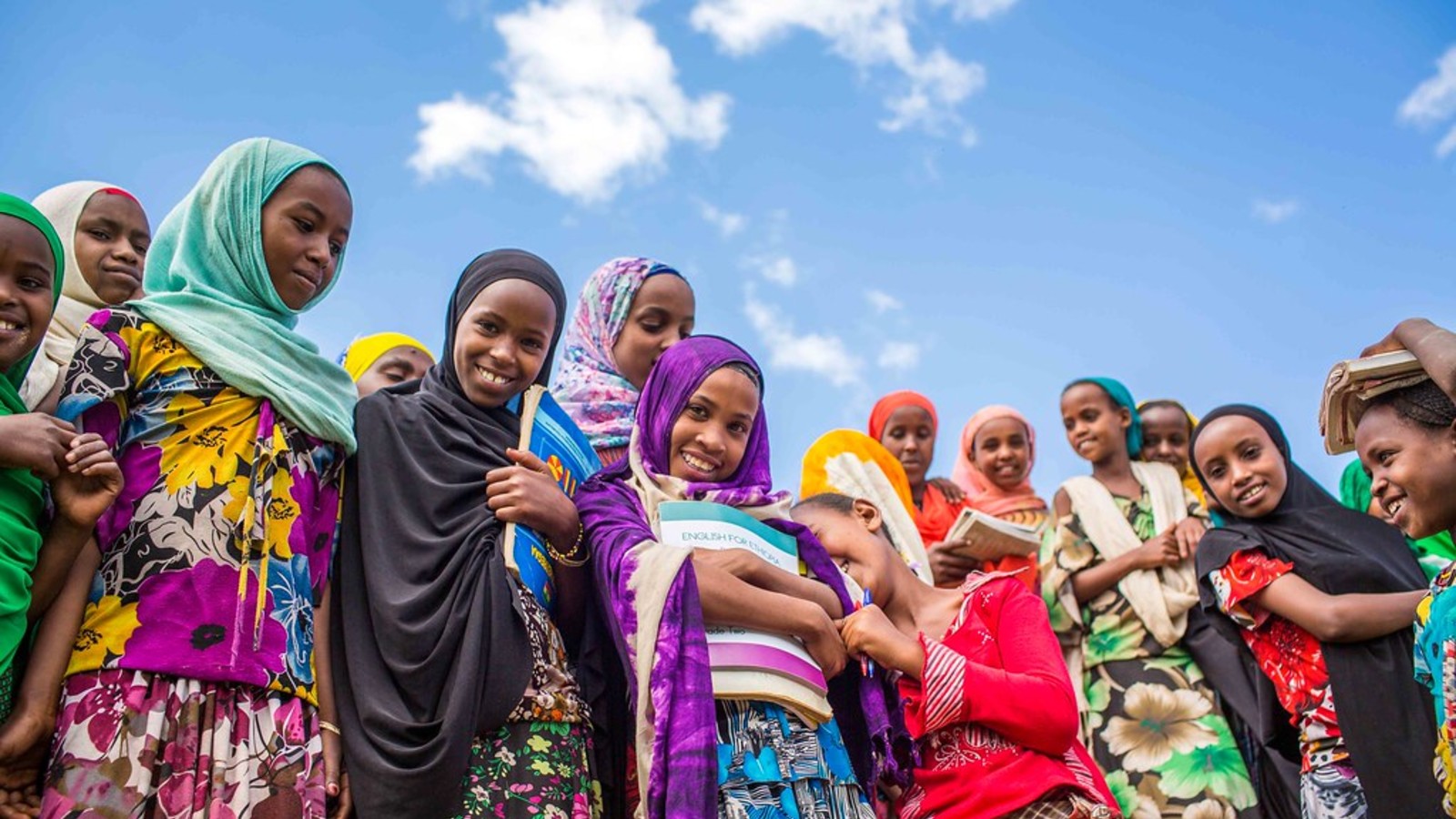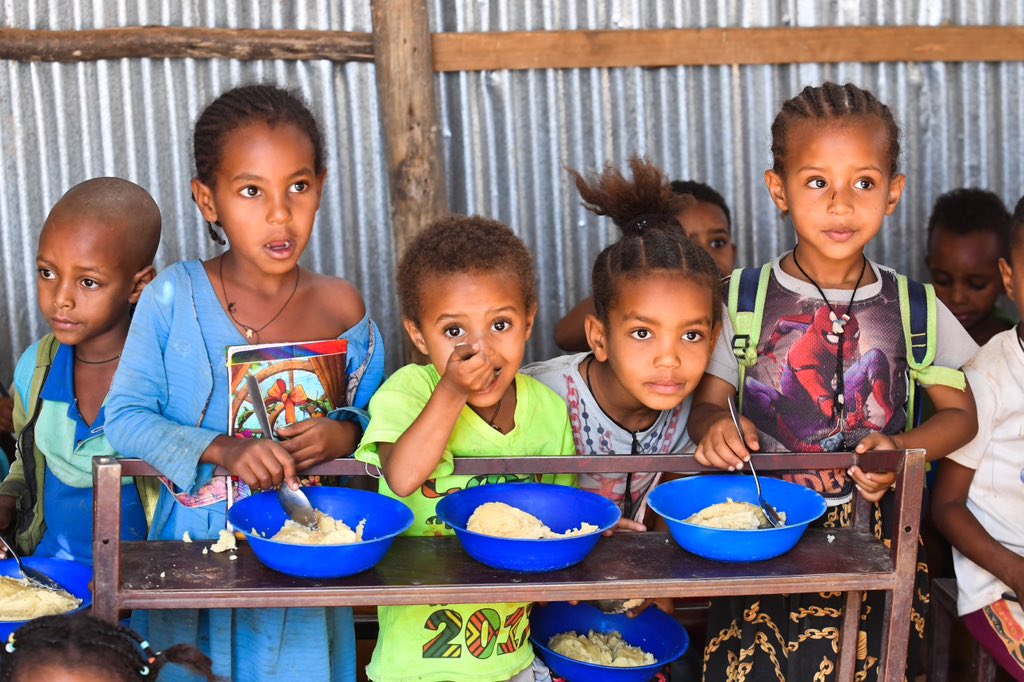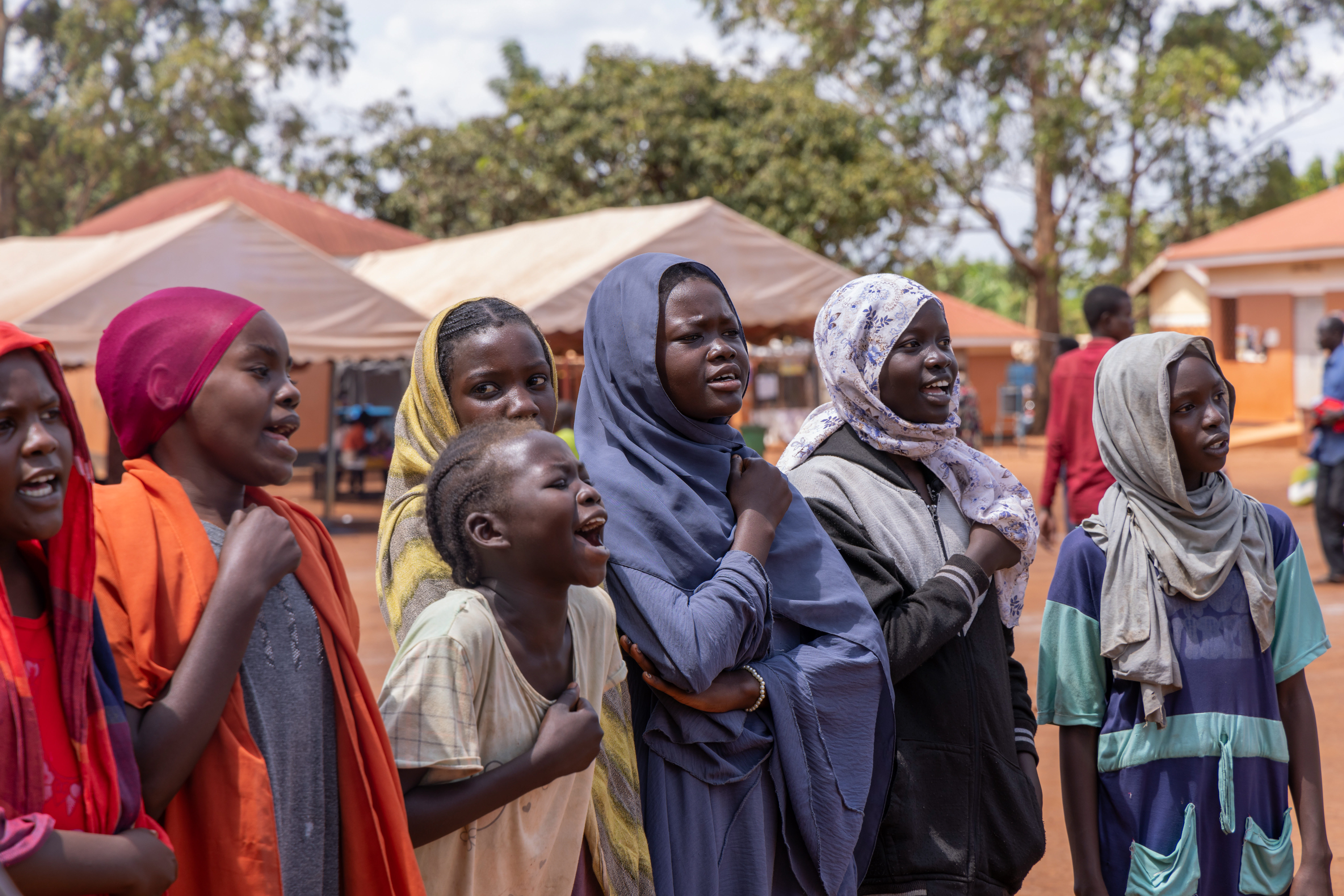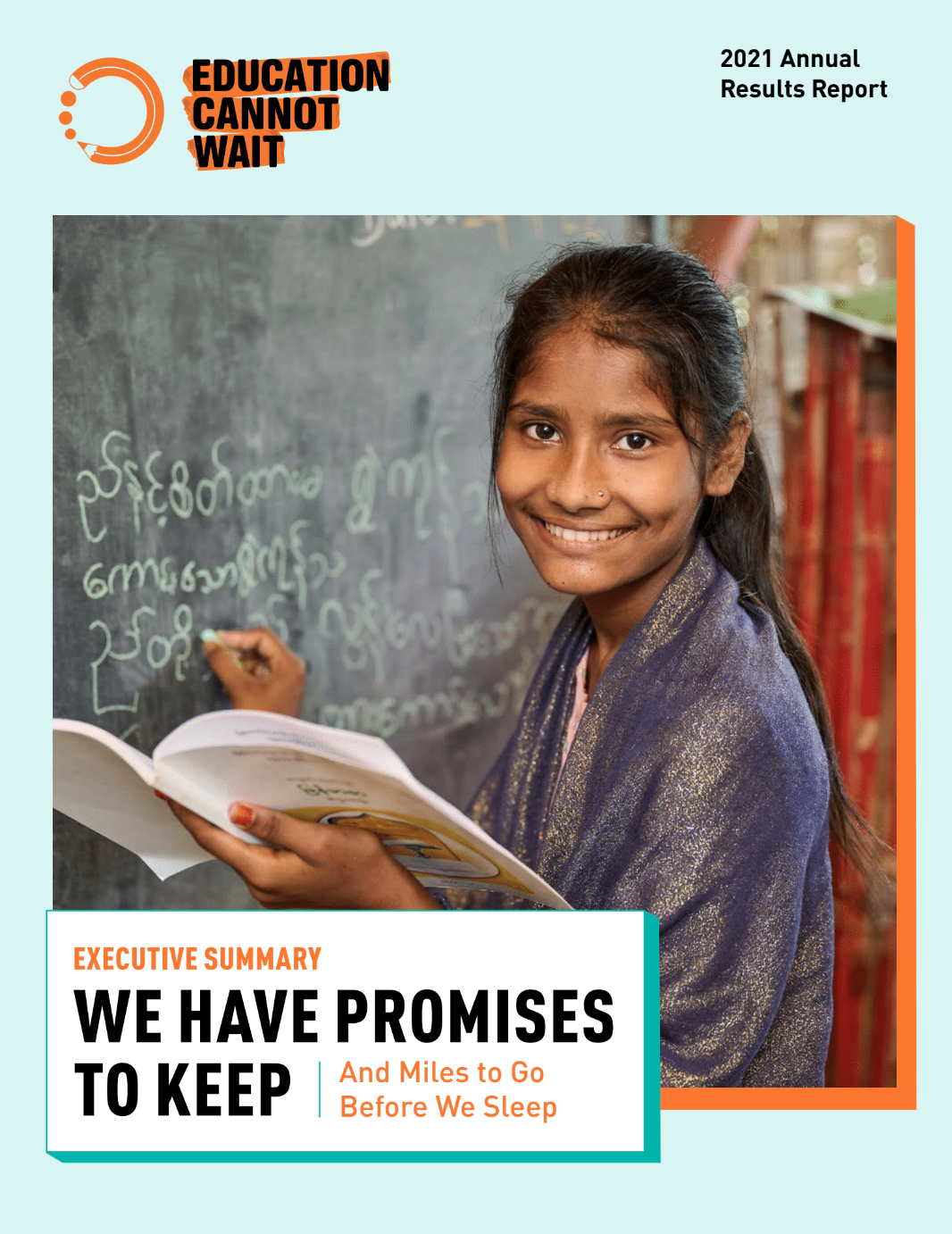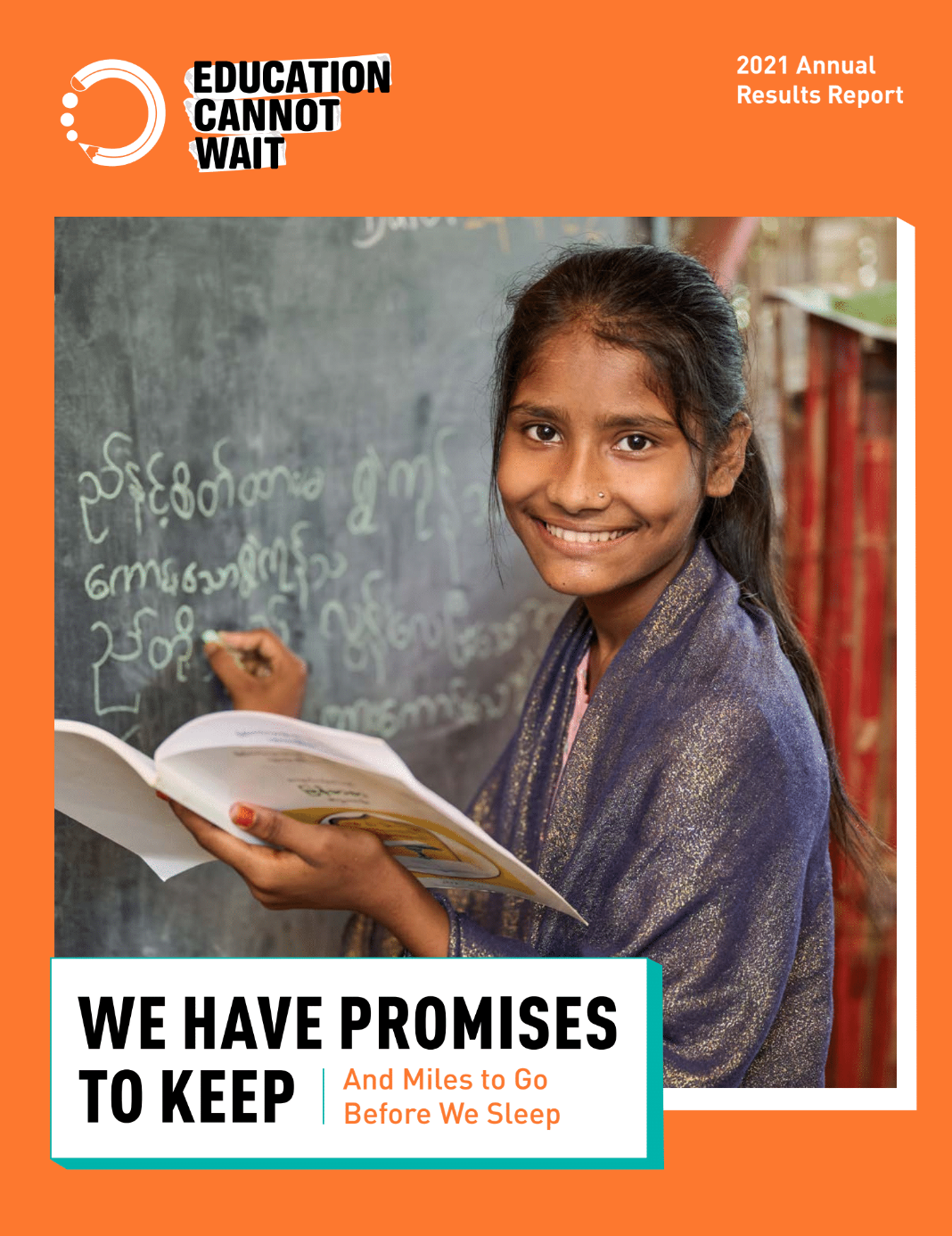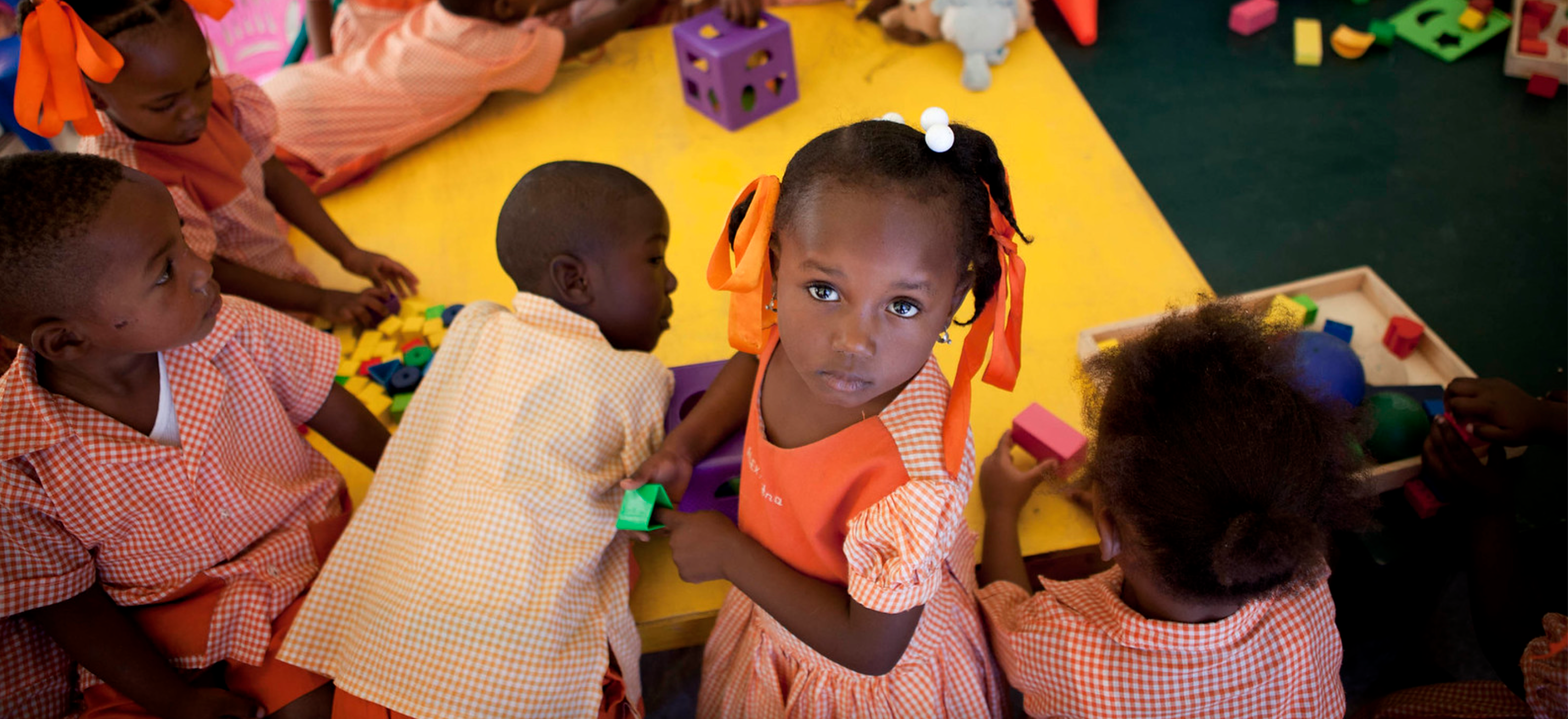Overview
In emergencies and protracted crises, children and adolescents require a ‘whole-of-child’ approach to address the multisectoral and holistic needs embedded in educational settings. Quality education that also addresses a child’s mental, emotional and physical needs has the potential to protect, reduce poverty, lessen the chance of conflict, eliminate inequality, improve health, boost economic growth, enhance one’s life and restore peace and stability.
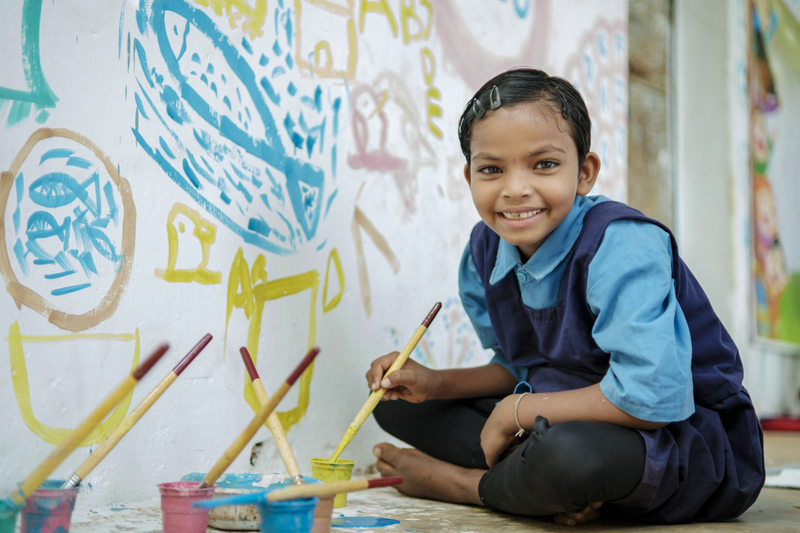
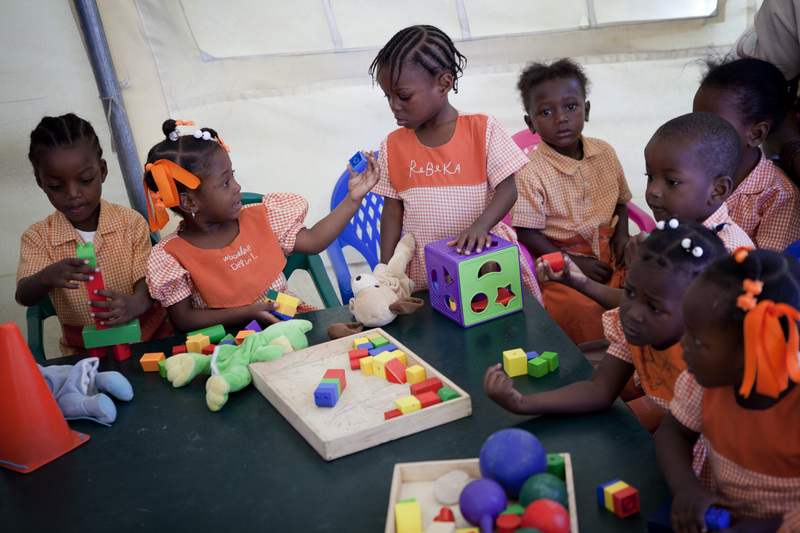
ECW’s Response
ECW’s holistic education principle is how the Fund approaches education investments and ensures partners address a variety of learning, teaching, organizational and safety needs. During multi-year resilience programme (MYRP) planning and development processes, ECW focuses on meeting the nuanced needs of the children and adolescents who will benefit from these investments. While the link between education and outputs such as an improved curriculum is clear, ECW also funds initiatives that address components that fall outside the mainstream educational realm but are still essential to ensuring children have a safe and secure place to learn, both physically and emotionally.
ECW MYRPs include initiatives on physical and emotional safety, school feeding, and water and sanitation in schools. By integrating and investing in programmes that include psychosocial support, school feeding programmes, disaster risk management and sanitation upgrades, ECW and partners support safe and nurturing learning environments which can help improve academic outcomes – as well as the mental, emotional and physical well-being of marginalized children and adolescents.

